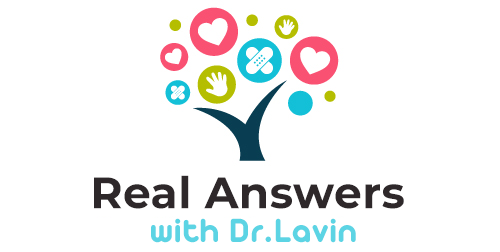Acetaminophen: A Serious Question Leads to the Recommendation to Suspend Use
Over the last several years, a growing body of evidence has raised a troubling question about the use of acetaminophen (Tylenol™, Feverall™). A number of studies have proven an association between the use of acetaminophen and the risk of developing asthma. These studies have approached the issue from a number of different perspectives and in each instance have found an association.
A recent study has tracked the use of acetaminophen in children (ages 6-7 and 13-14) over many years Their most recent publication described the experience of 320,000 young adolescents from 50 countries. What they observed was that if a child took acetaminophen once a month or more, that child had double the risk of developing asthma.
Other studies have found:

1. The more acetaminophen a child uses, the greater the risk of developing asthma. In some series, the risk has gone as high as sevenfold. That is, a group of children taking acetaminophen has been observed to have seven times the risk of developing asthma as children who do not take acetaminophen.

2. As countries have adopted the use of acetaminophen, the rate of asthma in those countries has gone up.

3. The risk of developing asthma in association with taking acetaminophen has been observed in utero, in infancy, in
early childhood, in school age children, and in adolescence.
Advanced Pediatrics has been following these studies and our initial reaction was disbelief. How is it possible that something so widely used as acetaminophen could cause such a serious problem as asthma, and no one noticed? Further, if acetaminophen causes asthma, why doesn’t everyone have asthma, since nearly every child in the US has taken acetaminophen? And, what harm could be caused if Advanced Pediatrics sounded a false alarm? What if acetaminophen turns out to be harmless and we have obstructed access to a very helpful medicine?
One story that may turn out to be quite relevant is the story of aspirin and Reye’s syndrome; both obscure concepts to most parents since almost no children take aspirin anymore, and almost nobody has heard of Reye’s syndrome. But prior to 1980, nearly every child in the US took aspirin when they had a fever. And at that time in most major children’s hospitals in the US, there was often a child with Reye’s syndrome in their ICU in any given month. Reye’s syndrome was a rare but devastating collapse of the liver due to a very severe metabolic problem that would often lead to death. The idea that somehow Reye’s syndrome and aspirin use might be connected seemed far-fetched when first observed. After all, aspirin was used like water, all the time, and with no serious resultant problems. In stark contrast, Reye’s syndrome was a very rare problem, characterized by a very complex set of metabolic errors leading to the death of a vital organ. How could these two problems be related?
When the first observations were published suggesting that those who took aspirin had a higher risk of Reye’s syndrome, the observations were met with nearly unanimous skepticism. Millions took aspirin, only hundreds got Reye’s syndrome. Aspirin is safe and common; Reye’s syndrome is deadly and rare.
But the observations kept rolling in. Eventually the question of a link could no longer be ignored and studies were set up in which very large numbers of children did not take aspirin, and wonder of wonders, none of them got Reye’s syndrome. Soon the FDA began warning that aspirin use in children, especially those with flu or chickenpox, could cause Reye’s syndrome. Parents suddenly stopped giving their kids aspirin. Since that moment, Reye’s syndrome has virtually ceased to exist. This last step was the final and definitive proof that aspirin caused Reye’s syndrome. Astounding as it was to all involved, the cessation of aspirin use by children saved many, many lives.
What about the question, if acetaminophen causes asthma, why doesn’t everyone have asthma? Well, consider the possibility that children run a 1 in 20 risk of developing asthma, which is indeed true, since about 5% of kids have asthma in the US. Now, if acetaminophen doubled the risk of developing asthma, the incidence would go from 5% to 10%. That would be a stunning level of harm. That would mean that of the 4 million kids born in the US every year, an additional 200,000 children would develop asthma, every year. And yet, 90% of children would still not develop asthma, even if they took acetaminophen.
We are not yet at the point where we know that acetaminophen causes asthma to develop. But enough information has been gathered to say we should find out.
It is in light of the Aspirin/Reyes Syndrome experience, the quality of the current studies on acetaminophen and asthma, and the fact that ibuprofen adequately covers the same medical needs, that Advanced Pediatrics has taken its position of not endorsing the use of acetaminophen for children of any age for the foreseeable future. . Please note that for the rare circumstance in which a child faces a danger from fever and cannot use ibuprofen for medical reasons, acetaminophen may still be a reasonable choice to use, but only under a doctor’s recommendation.
Addendum:
The New York Times has published an article, December 19, 2011 supporting the concern that acetaminophen may cause asthma to develop:
http://www.nytimes.com/2010/08/17/health/research/17risk.html
*Disclaimer* The comments contained in this electronic source of information do not constitute and are not designed to imply that they constitute any form of individual medical advice. The information provided is purely for informational purposes only and not relevant to any person’s particular medical condition or situation. If you have any medical concerns about yourself or your family please contact your physician immediately. In order to provide our patients the best uninfluenced information that science has to offer,we do not accept samples of drugs, advertising tchotchkes, money, food, or any item from outside vendors.








No comments yet.